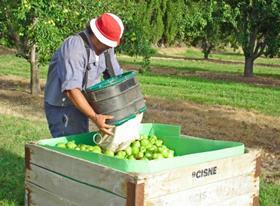
Apple and pear exports from Argentina’s Alto Valle de Neuquén y Río Negro regions fell by 17.4 per cent between January and September compared to the same period last year. According to Senasa, shipments totalled 299,560 tonnes, down from 361,644 tonnes in 2016, marking their lowest level in 30 years.
Pears exports went from 280,855 tonnes to 236,635 tonnes, while apple exports dropped from 80,789 tonnes to 61,925 tonnes.
Cafi, the Argentine Chamber of Integrated Fruit Growers, said the results reflect the deepening crisis within the industry and mark the fourth consecutive year in which exports have fallen.
The fall comes in spite of the economic measures introduced by Mauricio Macri’s government in 2015 to stimulate foreign trade, which included the devaluation of the Argentine peso and the elimination of taxes on fruit exports
Although this raised expectations within the industry, the rise in production costs resulting from the weaker currency all but wiped out any possible benefits, producers said.
Years of underinvestment have taken a heavy toll on Argentina’s topfruit industry that will take several years to correct. The lack of competitiveness caused by high costs, low sales and unfavourable exchange rates is proving harder to address than initially hoped.



